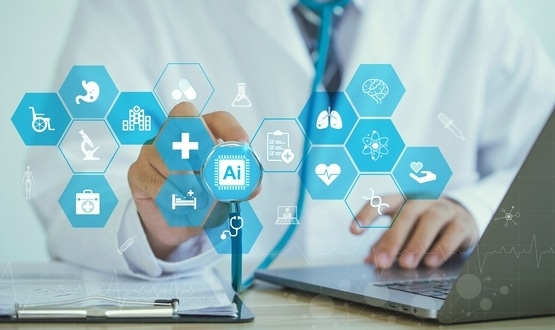Is there a regulation for that?
- 28 October 2013

The ‘smartphone generation’ of junior doctors expects to use their phones at work, but there are remarkably few regulations to control the production and use of apps in healthcare.
Richard Brady, a surgical registrar at NHS Lothian who has done research studies into the use of apps, is concerned about this.
He tells EHI that despite the large number of apps on the market, few have any healthcare input during their creation. Worryingly, if perhaps unsurprisingly, his research has found that some could lead doctors into making lethal mistakes.
“When we analysed apps which assisted the conversion of different types of opioids, half had no medical involvement and half had no medical source of information declared,” he says.
“In addition, the variation of the conversion dose supplied by the different apps for the same drug could be as high as 16 times the dose.”
He acknowledges that the responsibility to make sure that drug doses are correct always lies with the clinician. But many of these apps claim to be helping doctors; who have little to tell them whether the technology is accurate and safe.
“The regulations don’t take account of the fact that junior doctors regularly use their own device at work and their use of calculators and apps is unregulated,” he says.
Regulation is on the way
In the US, the Food and Drug Administration has just released its final guidance on the use of mobile health apps. The guidance says that any app that turns a smartphone or a tablet into a medical device will be regulated.
Here in the UK, there is no regulation like that. However, it is likely that the European Medicines Agency and the Medicines and Healthcare products Regulatory Agency will take the same approach.
In addition, Brady says there needs to be a safe repository for apps, both at a local and a national level. “Trusts and health boards or national organisations need to quickly grasp the need to establish a safe, reliable repository so that users and patients can be reassured in the technology they’re using,” he says.
“After the tsunami of global medical apps, establishing which are quality and which are dangerous or unreliable is now a major challenge. Peer-reviewed repositories provide at least some reassurance.”
Deciding who should regulate apps, which regulations to follow, and how to analyse safety and data security risks, are all contentious issues.
As the US and Europe have moved towards including software within their medical device regulations, some have argued that any attempt to regulate apps is misguided, since this will inhibit creativity, and user-review will weed out bad products.
Apple recently decided to reject some apps containing drug dosages, which Brady says at least reflects a change in the “overall medical app ecosystem.” But, he says: “It is not for app stores to regulate health apps. They don’t have the expertise or clinical knowledge to do that.”
Supporting industry
As well as being a surgeon, Brady has founded a company called Research Active, which specialises in developing apps and websites targeted towards healthcare services.
This means he knows how difficult it can be for industry and, especially, small and medium enterprises to get a foot in the door of the NHS. But he says industry should see regulation as an opportunity, rather than as another barrier.
“The industry as a whole, for its own good and reputation, needs to provide some quality framework for ensuring that consumers are clear about what they are using, to maintain trust in the technology,” he says.
If regulators and companies can crack this, he adds, apps and other device-based information sources have a lot to offer. “I believe that it is a natural evolution of the health care revolution for people to have information at hand when they want it, and mobile apps provide that, provided they have the right security measures in place,” he says.
“I think they represent an excellent way of engaging with healthcare professionals and support patients’ own healthcare journey.” Brady adds that, personally, he uses apps frequently when dealing with medical literature and to support his knowledge.
Discuss the issues at EHI Live 2013
Brady is speaking at the HANDI Health Apps Conference at EHI Live 2013 next week on how to address the inaccuracy and lack of authority in the use and development of medical apps.
He believes that the NHS needs to wake up and realise that clinicians bring their own devices to work and do use apps in the delivery of healthcare.
“The challenge is to reap the benefits of such technology, but to keep security and IT risk minimised whilst fostering and shaping the on-going direction of travel to mobile forms of care delivery,” he says.
EHI Live 2013 is more than a meeting, more than an exhibition. For anyone involved in the use of information in healthcare it’s a golden opportunity to update knowledge, get answers to questions, meet the experts and think about the future. This year’s conference is free for all visitors to attend.



